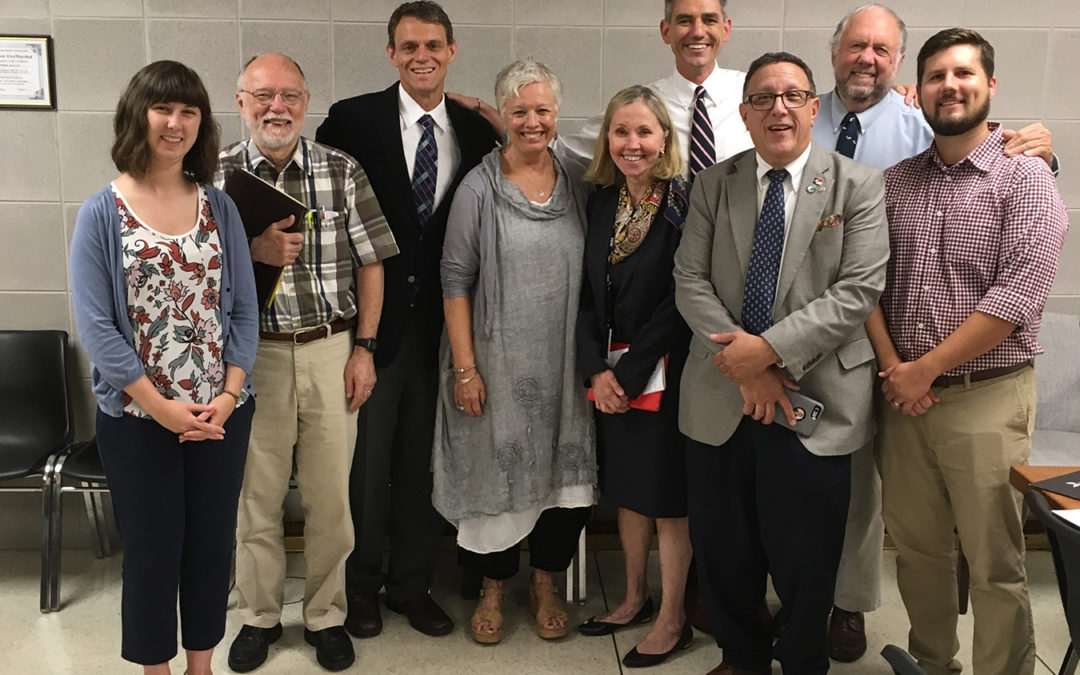What’s Going On With the NC Farm Bill?
What’s Going On With the NC Farm Bill?
Action Expired
6/26/2018
Last night Governor Roy Cooper vetoed SB711, a dangerous bill that would greatly limit the constitutional right of North Carolinians living near industrial hog farms to seek justice in the courts for nuisance and pollution of their air and water. The General Assembly will vote later this week on whether or not to override Governor Cooper’s veto.
This is when we need your calls more than ever. Will you make a quick call to your state representative now to make sure Governor Cooper’s veto of SB711 stands? If you don’t know who your representative is, you can use the “Who Represents Me?” tool on the NC General Assembly website here, and find your representative’s phone number here.
The Facts About SB711:
- This bill was drafted to protect Smithfield Foods, an out-of-state industrial hog operation owned by Chinese business interests, from a lawsuit brought by neighbors of industrial hog farms in Eastern NC. The intention is to protect a foreign corporation from liability where rural communities of color are disproportionately impacted by operations they own or control through contracts.
- This bill is not about protecting farmers, it’s about protecting profits. All of the pending lawsuits are against Smithfield through its subsidiary, Murphy-Brown. The only entity paying damages (or potentially liable) in these cases is Smithfield. While some of the facilities are operated by contract growers, the only defendant in the lawsuits is Smithfield.
- SB711 allows only neighbors within half a mile of an industrial farm to file a lawsuit, but the claim must be brought within one year of the establishment of the operation. Since there’s been a moratorium on new hog CAFOs (Confined Animal Feeding Operations, also known as large industrial animal operations) since 1997, new operations are not being established. This prevents any neighbor from being able to pursue a nuisance suit. This runs contrary to nuisance theory (and general statute of limitations) where the claim arises when the harm actually occurs, not when the potential for harm begins.
- This is not to mention neighbors of industrial farms who live more than half a mile away, who will have no longer have any standing to sue for nuisance. Water pollution moves animal waste hundreds of miles downstream, and odor and bacteria are carried by the wind, so neighbors farther than half a mile from hog farms will continue to be effected.
- SB711 would also severely limit local governments’ ability to regulate large agriculture operations – including poultry plants.
You can still take action. If your state representative voted YES on SB711, ask them to support Governor Cooper’s veto. If your NC House Representative voted NO on SB711, call and thank them for supporting North Carolina homeowners, and ask them to stand strong to support Governor Cooper’s veto of this dangerous bill. Here’s how some of WNC’s House Reps. voted on SB711:
Chuck McGrady (Henderson): No
Cody Henson (Henderson, Polk, Transylvania): Yes
Kevin Corbin (Cherokee, Clay, Graham, Macon): Yes
Jonathan C. Jordan (Ashe, Watauga): Yes
Michele D. Presnell (Haywood, Madison, Yancey): Yes
Susan C. Fisher (Buncombe): No
John Ager (Buncombe): No
Brian Turner (Buncombe): No
Tim Moore (Cleveland): Yes
Mike Clampitt (Haywood, Jackson, Swain): Yes
Josh Dobson (Avery, McDowell, Mitchell): Yes
And for the record, here’s part of the statement Governor Cooper released after his veto:
“North Carolina’s nuisance laws can help allow generations of families to enjoy their homes and land without fear for their health and safety. Those same laws stopped the Tennessee Valley Authority from pumping air pollution into our mountains…Giving one industry special treatment at the expense of its neighbors is unfair.”
Thank you for standing up for North Carolina homeowners and for clean air and water in the state we love.





